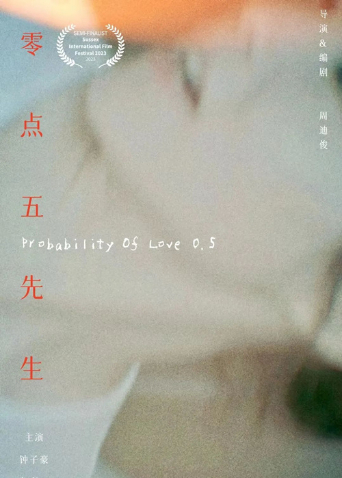 茅弘二
茅弘二
发表于4分钟前回复 :一串悲凉的歌声诉说着蜘蛛城的历史预言。战国时期,处于密林围抱的蜘蛛城,地形复杂,敌军攻来此地,必然迷路,因此城主稳坐城楼,指挥若定,四面排出大将御敌,可保此城固若金汤。大将鹫津武时(三船敏郎 Toshiro Mifune 饰)和副将三木因为平叛得力,准备回城领赏。途中,二人阴错阳差走入了密林深处,偶遇一白发老妪弹琴吟唱。他们觉得此事蹊跷,怀疑是敌方故布疑阵,因此上前以武力逼其就范。但此人却预言鹫津将夺城主之位,三木之子也将继承大统,正当两人将信将疑之时,此人化作一道白光销声匿迹。此后,回到城中,鹫津做了北城城主,但念及预言,心有不甘,于是在妻子浅茅的怂恿下,弑君,自立为蜘蛛巢城城主,然而这才只是预言的开始……
 文熙俊
文熙俊
发表于3分钟前回复 :『1970年,全世界都知道贝尔法斯特是个分裂的城市,附近邻里都变成贫民窟了,但是我对这一切毫不知情。我的世界就只有这麽大而已——四面牆和几条安静的街道,不过那是在我认识米奇寳之前』『1970年,全世界都知道贝尔法斯特是个分裂的城市,但是我对这一切毫不知情。直到事实像火车一样碾过……』本片根据欧文麦卡菲帝著名的舞台剧拍摄而成,讲述了七十年代北爱尔兰两个少年的故事,一个来自天主教家庭,一个则是清教徒背景,原该水火不容的他们却跨越了边界,成为血盟结拜兄弟。他们学著当时正在上映的《虎豹小霸王》,决定离家抢银行做大事......
 杨丹
杨丹
发表于7分钟前回复 :Sixty Glorious Years is an exercise in the creation of iconography, both for Victoria and its star, Anna Neagle (who subsequently became known as 'Regal Neagle'). Just as Elizabeth I commissioned artists to create flattering iconic images for public consumption, so this film performs a similar function, for Neagle is more beautiful than the real life Victoria. Controversial events (such as the 'Irish problem') are omitted and unpleasant aspects of Victoria's character (her petulance, arrogance, favouritism and 'right to privilege') are glossed over as endearing little 'whims'. Albert acts as a moderating influence when she goes too far.The film followed a year after the highly successful Victoria the Great (d. Herbert Wilcox, 1937). Again the screenplay is by Miles Malleson and Robert Vansittart, and many of the supporting cast (the cream of acting talent of period) repeat their roles, this time for the colour cameras. This was the first full length Technicolor film of cinematographer Freddie Young, who captures the spectacle of royal weddings, grand balls and opulent interiors, with scenes actually filmed at royal palaces. Vivid battle scenes, set in Alexander Korda's empire territory (Sevastopol and the Sudan), rival those in The Four Feathers (d. Zoltan Korda 1939).The title music sets the tone: a regal choir sings over a shot of the crown. Elgar's 1901 'Pomp and Circumstance' march is heard during the diamond jubilee celebrations and, as Victoria's coffin lies in state, the film concludes with Anthony Collins' stately music accompanied by the text of Rudyard Kipling's 'Lest we forget'. Combined with the emotional appeal of scenes of Victoria connecting with her 'ordinary folk', this is stirring stuff.The film connects with contemporary events of 1938. The release of two celebratory royal films was intended to boost public affection for the monarchy in the wake of Edward VIII's abdication. Anglo-German relations were another touchy subject. With another war on the horizon, influential voices wanted appeasement, and the film could be seen to fit that agenda. Victoria herself was of mainly German descent, nicknamed 'the grandmother of Europe', while Albert is a 'good German', charmingly played by Anton Walbrook as a cultured, decent man.Sixty Glorious Years now seems unduly formal and reverential. Had movies existed during Victoria's reign (they only emerged at the end) this might have been the kind of film produced. Unlike Mrs Brown (d. John Madden, 1997), it is all so very 'Victorian'.Roger Philip Mellor

